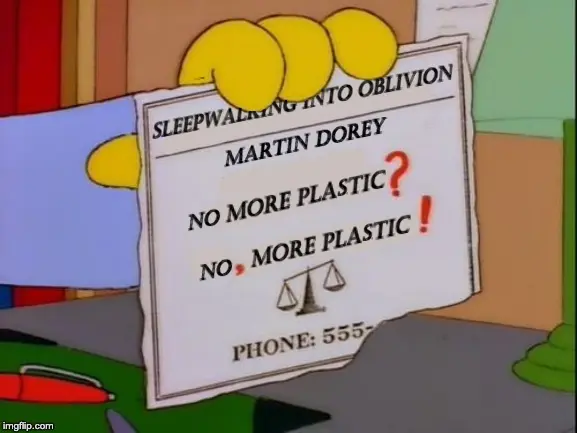I don’t understand why some books are wrapped in plastic at all. Like is it to protect the cover? Prevent people from reading it at the book store? Some weird contract with a vendor that requires a percentage of books be wrapped? A quirk of the shop that printed the book?
It makes zero sense.
Probably so they can be stored carelessly in dirty warehouses that may or may not control for humidity
Probably also in case the shipping container leaks or has some termites or something?
Warehouses are dirty.
Aren’t books shipped in boxes though? I guess maybe a printer might palletize the books and find it cheaper to not wrap the whole pallet?
It still seems like the individual book is the wrong place to focus on protecting it from damage it might incur in transit.
Agreed.
Plot twist: it was corn starch based.
that’s still bad though. it requires petroleum based processes to grow the corn and then convert the starch into a plastic like substance when the book could have just not been shrink wrapped. i get that you’re joking, and i’m being pedantic, but not enough people realize bioplastics are not the solution, they’re a gap measure, like EVs, and i’m usingeyour comment as a soapbox
Oh I see, they mistaken thought the title was “No, MORE Plastic!”
They’re saying Boo-urns!

How did he pick out the publisher… Just whoever was offering the best deal?
The way publishing industry has been for a very long time, authors (especially first time ones) don’t get to pick whoever pays the best deal. Just whoever pays the first.
Edit: Also, theoretically, publishers should accommodate author wishes once a publication contract has been made. Actually not unheard of that a publisher would do something cool for their up and coming star. But this? Sloppiness on the publisher’s part, plain and simple.
The author doesn’t get to pick who can print his book? Or do you mean he has no real choice because he’s got bills to pay?
Authors have to submit manuscripts to publishers individually (or, in some markets, agents who work with multiple publishers in the same niche).
Publishers get showered with manuscripts. Very small percentage of them are what publishers deem will meet market goals.
In standard publishing contracts, the author gets paid an advance. This is basically the royalty percentage for the entire first print run. It’s not refundable. It represents the trust the publisher puts on the author, and if the publisher can’t sell all copies, well, tough for them. (They’d probably just not work with that author again.)
Getting to that point is a pretty massive hurdle to clear for first time authors.
So no, authors don’t really get to pick their publishers. The only scenario where people get to pick their publishers is some celebrity deal bullshit.
Interesting! I’m curious if he addresses this lack of choices in his proposals for how to make a difference.
Maybe I’ll just download it though.
From what you hear it’s that they have bills to pay. If a publisher doesn’t know your name, they’re not going to assume it’s an automatic best-seller so they’re less likely to actually look at your work to see if it’s worth it.
Also, to pay your bills before the publisher actually prints the book, you have to find one way ahead of you finishing the book, meaning that you have to send them an unfinished manuscript, further hurting your chances - but if they like it you get that money before it’s done, with the caveat that they’re gonna sue if you don’t deliver.
No. He’s that one unique author who looked for the worst deal for his work.
Or terms he finds acceptable






